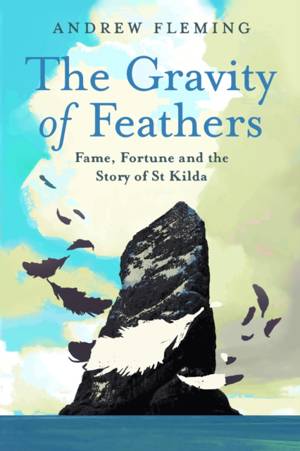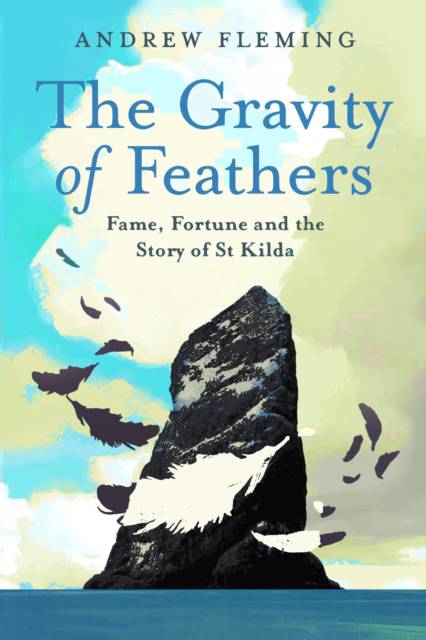
Bedankt voor het vertrouwen het afgelopen jaar! Om jou te bedanken bieden we GRATIS verzending (in België) aan op alles gedurende de hele maand januari.
- Afhalen na 1 uur in een winkel met voorraad
- In januari gratis thuislevering in België
- Ruim aanbod met 7 miljoen producten
Bedankt voor het vertrouwen het afgelopen jaar! Om jou te bedanken bieden we GRATIS verzending (in België) aan op alles gedurende de hele maand januari.
- Afhalen na 1 uur in een winkel met voorraad
- In januari gratis thuislevering in België
- Ruim aanbod met 7 miljoen producten
Zoeken
€ 34,95
+ 69 punten
Omschrijving
Challenges the traditional narrative of the island's evacuation by revealing how its inhabitants adapted to modernity and engaged with the tourist trade.
Discover the true story of St Kilda.
When the last 36 inhabitants of St Kilda, 40 miles west of the Scottish Hebrides, were evacuated in 1930, the archipelago at 'the edge of the world' lost its permanent population after five millennia.
It has long been accepted that the islanders' failure to adapt to the modern world was its demise. Andrew Fleming overturns the traditional view. Unafraid of highlighting dark times, he shows how they sacrificed their reputation as an uncorrupted, ideal society to embrace and exploit the tourist trade. Creating a prestigious tweed, exporting the ancestors of today's Hebridean sheep, the islanders gained access to consumer goods and learned how to play politics to their advantage.
This book tells the absorbing and eventful story of St Kilda from earliest times, up to the evacuation and its aftermath. Previously untapped sources and fresh insights bring to life the personalities, feelings, attitudes and rich culture of the islanders themselves, as well as the numerous outsiders who engaged with the remote island community.
Discover the true story of St Kilda.
When the last 36 inhabitants of St Kilda, 40 miles west of the Scottish Hebrides, were evacuated in 1930, the archipelago at 'the edge of the world' lost its permanent population after five millennia.
It has long been accepted that the islanders' failure to adapt to the modern world was its demise. Andrew Fleming overturns the traditional view. Unafraid of highlighting dark times, he shows how they sacrificed their reputation as an uncorrupted, ideal society to embrace and exploit the tourist trade. Creating a prestigious tweed, exporting the ancestors of today's Hebridean sheep, the islanders gained access to consumer goods and learned how to play politics to their advantage.
This book tells the absorbing and eventful story of St Kilda from earliest times, up to the evacuation and its aftermath. Previously untapped sources and fresh insights bring to life the personalities, feelings, attitudes and rich culture of the islanders themselves, as well as the numerous outsiders who engaged with the remote island community.
Specificaties
Betrokkenen
- Auteur(s):
- Uitgeverij:
Inhoud
- Aantal bladzijden:
- 368
- Taal:
- Engels
Eigenschappen
- Productcode (EAN):
- 9781780278810
- Verschijningsdatum:
- 3/12/2024
- Uitvoering:
- Hardcover
- Formaat:
- Genaaid
- Afmetingen:
- 156 mm x 236 mm
- Gewicht:
- 498 g

Alleen bij Standaard Boekhandel
+ 69 punten op je klantenkaart van Standaard Boekhandel
Beoordelingen
We publiceren alleen reviews die voldoen aan de voorwaarden voor reviews. Bekijk onze voorwaarden voor reviews.









